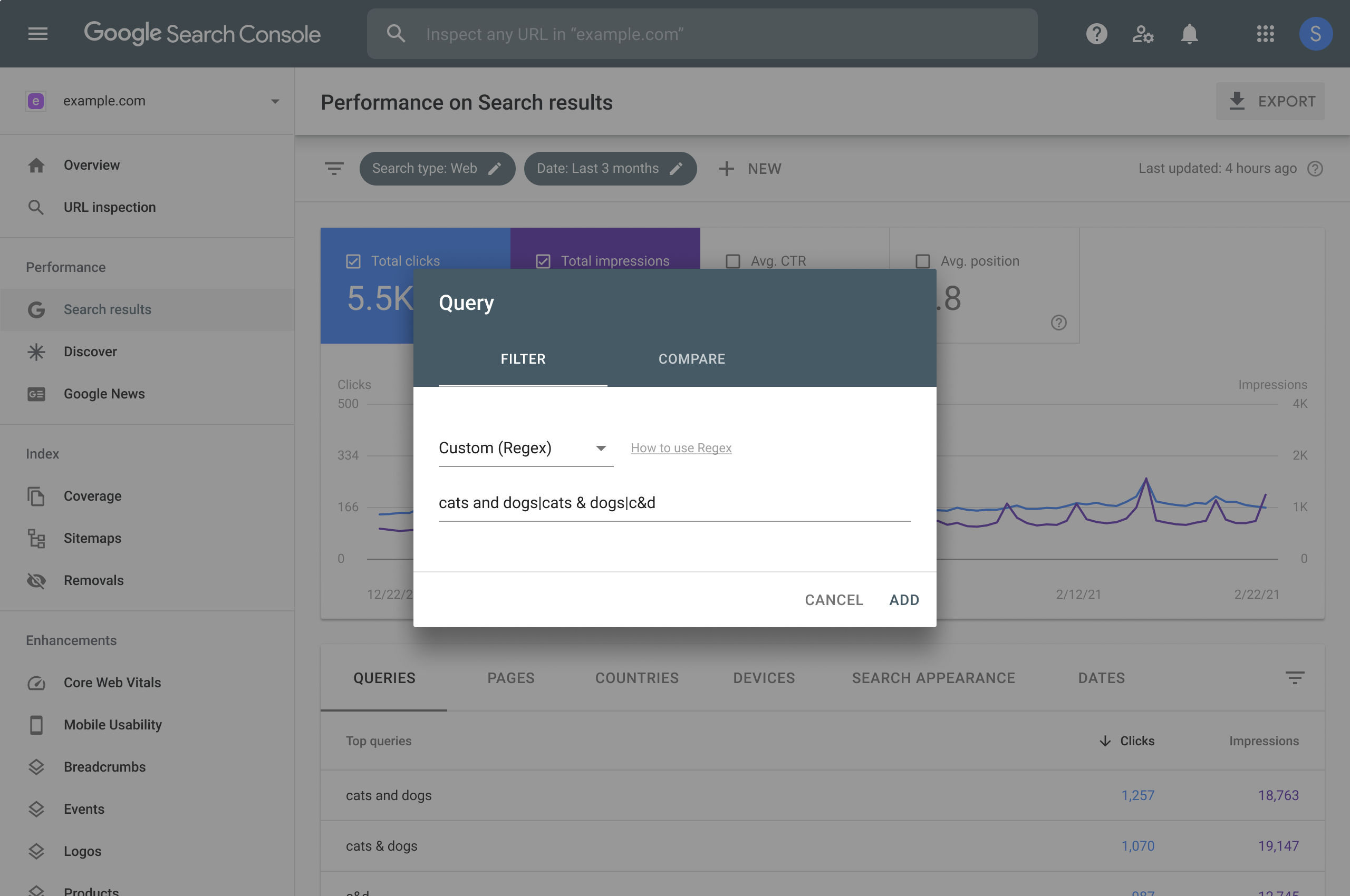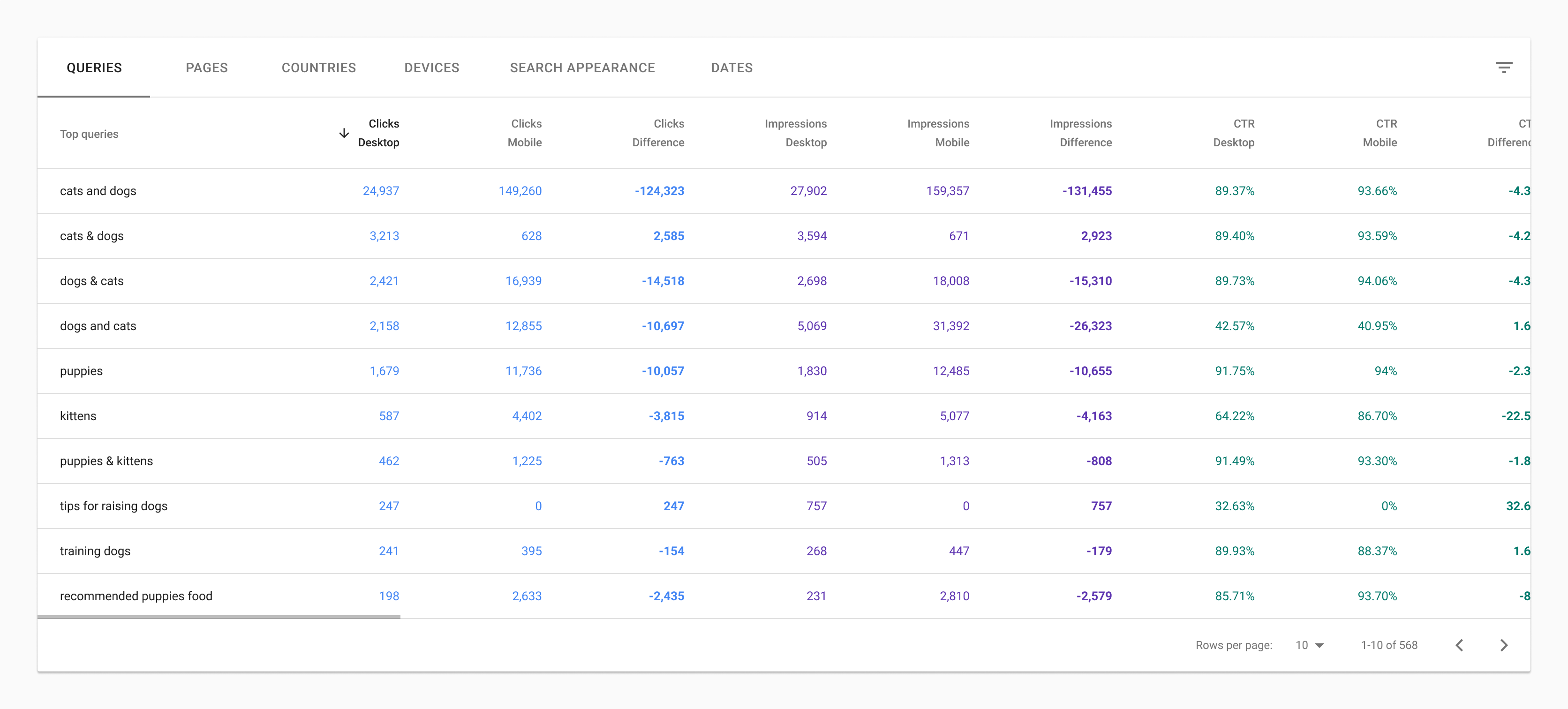Google Search Console gets two new features designed to improve the efficiency of analyzing data in reports.
Site owners can now use Search Console to filter data by regular expression (regex), as well as utilize a revamped comparison mode which supports more than one metric.
Continue reading to learn more about these new features and how they can assist with data analysis in Search Console.
Regex Filters
Search Console reports now support regex, which will help with creating more complex query and page based filters.
Google explains how the addition of regex support allows site owners to capture more query data:
“For instance, let’s say your company is called ‘cats and dogs’ but is sometimes also abbreviated as ‘cats & dogs’ or even ‘c&d’. You can use a regex filter to capture all of your branded queries by defining the regex filter: cats and dogs|cats & dogs|c&d.”

Previously, Google Search Console did not support complex cases, such as a query containing one out of a few optional strings. It only allowed site owners to filter queries and page URLs according to three patterns: containing a string, not containing a string, and exactly matching a string.
To use the new regex filter, start by creating a query or page filter, then select the dropdown menu and select Custom.
An update to Search Console’s performance report help page notes the following about using regex filters:
- Search Console defaults to partial matching, meaning the regular expression can match anywhere in the target string unless it contains the characters ^ or $ to require matching from the start or end of the string, respectively.
- Reports default to case-sensitive matching. Site owners can specify “(?i)” at the beginning of the regular expression string for case-insensitive matches. Example: (?i)https
- Invalid regular expression syntax will return no matches.
For further assistance with creating regex filters, Google points to a live testing tool that can be found here.
Lastly, Google notes queries and pages may not be available at times in order to protect user privacy or due to storage limitations. In those cases Google will show a reminder when a relevant filter is applied on queries or pages.
Revamped Comparison Mode
Site owners use the comparison mode in Search Console to answer comparison based questions. Until now, the table wouldn’t contain a comparison column with a relative difference in percentage if more than one metric was selected.
The revamped comparison mode now supports cases where more than one metric is selected. An improvement to the interface nearly doubles the area available for the data table, making it easier to view results side-by-side.

Search Console’s revamped comparison mode supports the new regex filter for queries and pages as well.
While comparison mode now allows more than one metric to be compared, only one filter at a time can be applied to those metrics. Adding a new comparison filter will replace the existing comparison.
These updates to Search Console are now available to all site owners.
Source: Google Search Central Blog


